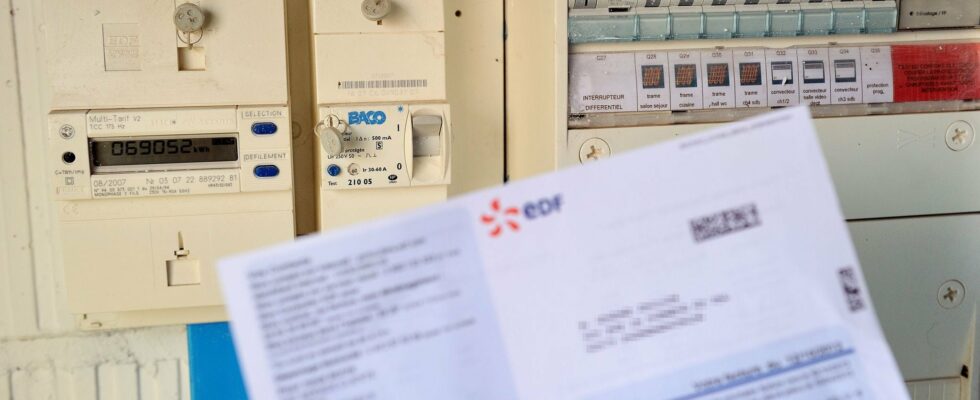The Ministry of Budget and Public Accounts confirmed information from the newspaper on Sunday October 6 The Parisian according to which Bercy would consider raising a tax on electricity “beyond” 32 euros per megawatt hour. According to the daily, “Bercy is working to increase the domestic final consumption tax on electricity (TICFE) beyond 32.44 euros per megawatt hour, which was the level of taxation before the inflationary crisis.”
The tax is currently set at 22 euros per megawatt hour. Questioned by AFP, the ministry acknowledged that the hypothesis mentioned by The Parisian was under study: “It is planned to go further but for the moment there is nothing definitive, it will be submitted to parliamentary debate”, it was indicated.
The previous government organized the gradual end of the tariff shield – which is very expensive for the State, estimated at 110 billion euros from 2021 to 2023. It thus increased the amount of the TICFE in February from 1 to 21 euros per MWh and intended to raise it to 32.44 euros per MWh in February 2025, i.e. its level before the surge in inflation, while this tax had been lowered to the minimum to relieve the bills of the French during the energy crisis. Raising it to 32.44 MWh should allow the State to recover 5 billion euros.
Everyone is concerned
Despite the end of the tariff shield, French people with regulated tariffs should nevertheless expect a drop of at least 10% in their bills by the same deadline, the Energy Regulatory Commission indicated in September. But if the tax rises beyond 32 euros per MWh, the consequences could be different. If necessary, “despite the increase in this tax, there will still be a drop in prices expected to be 9% in February 2025, or around 110 euros less on average on the annual bill, for the 80% of households under regulated prices” for electricity, the ministry assured AFP. He did not quantify the expected impact on state revenue of such an increase in the tax.
From individuals to businesses, everyone is affected by the increase in the TICFE: subscribers to the regulated EDF tariff (the so-called blue tariff, the peak/off-peak tariff, or the Tempo offer), i.e. more than 20 million customers, but also individuals and professionals who have subscribed to a fixed or variable price market offer from an alternative supplier.
It’s up to Parliament to decide
On France 3 on Sunday, the Minister of Ecological Transition and Energy, Agnès Pannier-Runacher, warned against “the risk” of going too far in increasing the tax. The drop in prices on the international market “makes it possible to return the tax that the French paid before the energy crisis to the pre-crisis level”, she underlined, before adding: “Simply, it We must not go beyond that.” Under penalty in particular of reducing the bill of certain modest French people not subject to the regulated electricity tariff. Agnès Pannier-Runacher called for people to be “very vigilant”. “If we go beyond (32 MWh), the risk is that there will indeed be an increase in the price of electricity. We must be very vigilant because the French of modest means and the middle classes (. ..) will have the double punishment. They are often the ones who live in thermal sieves,” according to the minister.
The latter underlined the effect on businesses of an increase in this tax: “It is also an important element for manufacturers, for bakers, because when there is taxation, it is seen in their costs. And so here too, we will have to be vigilant,” she insisted. “The arbitrations are underway and it is Parliament which will decide” during the examination of the budget next week, she concluded.
Within the framework of regulated tariffs, the price is set by the public authorities, on a proposal from the Energy Regulatory Commission (CRE). “The 20% (of customers) who have unregulated prices can easily switch to regulated prices,” the ministry told AFP.
